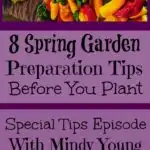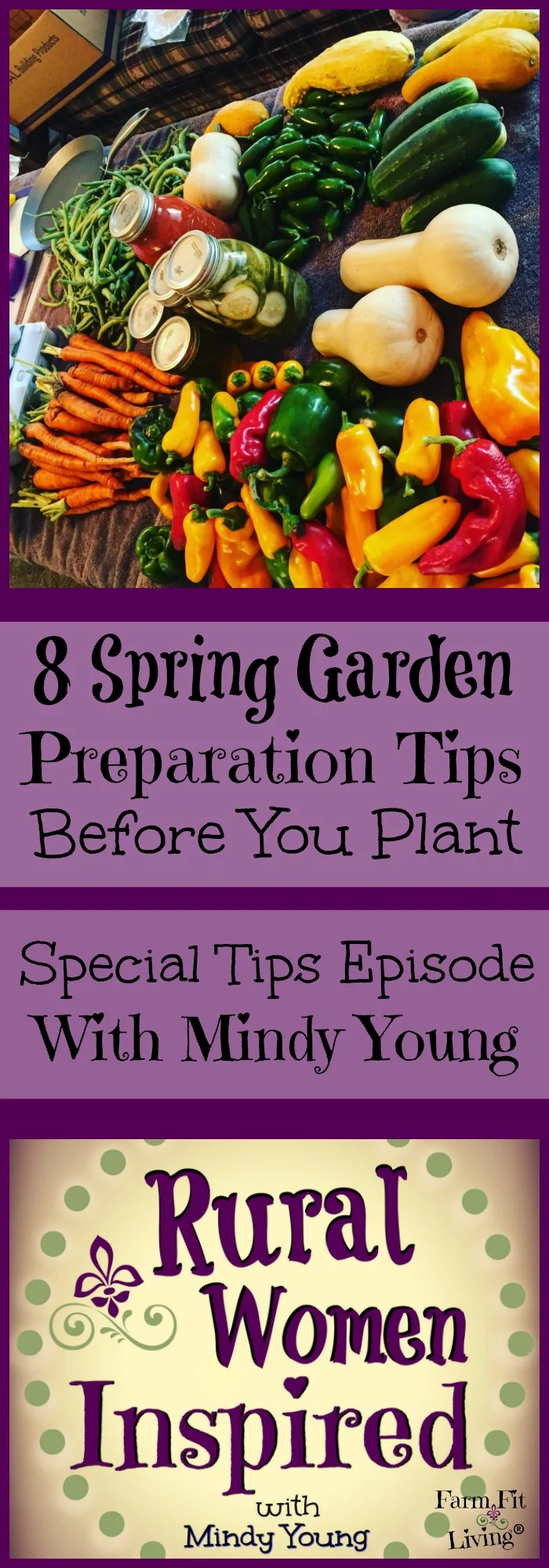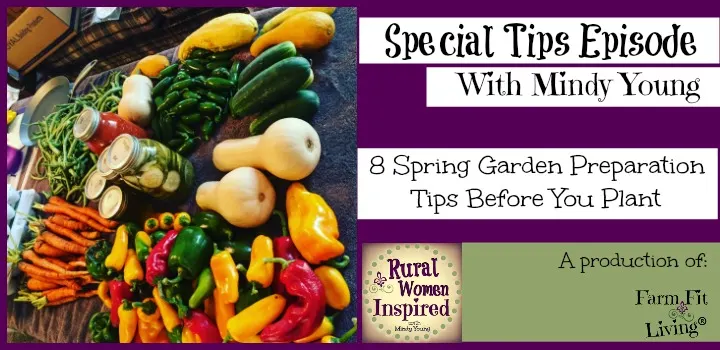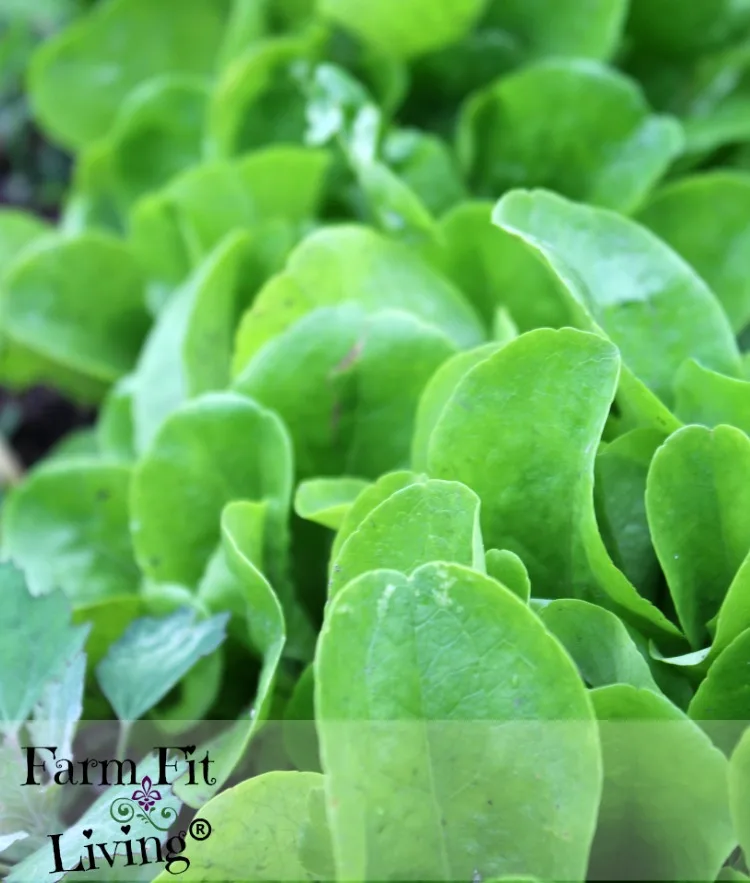Looking for spring garden preparation tips that will really make a difference this year?
Spring garden preparation tips that are technical and game changing are right here. As a home gardener, you want to have spring garden preparation tips that are easy to implement but that will help you to have a successful start to your garden.
So, in this special tips episode, I’m going to be covering 8 early spring garden preparation tips for you to implement. If you’re already doing some of them as part of your own spring gardening checklist, that’s wonderful! I can tell you from experience that the most successful gardens begin before planting.
And spring garden preparation begins with preparing that seed bed correctly. Preparing garden soil for planting vegetables and other crops is key to a successful garden yield.
But, what is my experience with gardening? Well, it began 31 years ago sitting in my parents garden. I’ll jump into that story first.
About My Garden Experience
With 31 years of experience, I grew up in the garden.
- As a child, I helped my parents in the garden and learned so much.
- I loved exhibiting those vegetables in 4-H and Open class at the county fair.
- I took numerous soil courses in college.
- While in college, I planted seeds in planter pots to grow on the small porch of my double wide trailer.
- I became an Ag & Hort Extension Agent, where I taught people how to garden for 7 years.
- And I’ve raised tomato, squash and sweet corn yield trials for several years.
- Finally, all while raising my own garden on my homestead the past 10 years.
So, enough about me! Now, I want to share my vegetable garden tips with you. Let’s jump right into those tips for planning the garden.
First of all, Write Some Goals for the Garden
Planning the Spring garden begins with the end in mind. What will you be using those vegetables for? Examples:
- Exhibiting the best veggies at the county fair.
- Growing enough veggies to feed the family all year.
- Farmers Markets
- Donating vegetables to those in need?
The list is endless! Go ahead and write down some goals. Then, decide where you will put everything by drawing out a map.
Then, Make a Map of the Garden
This is basically vegetable garden layout ideas for where you will plant your different seeds or your vegetable garden plants. It doesn’t have to be pretty. Mine are never ever pretty because I am NOT good at drawing. But, I want to make sure that I know where all the veggies will go.
Some factors to pay attention to:
- First of all, type of soil
- Soil Drainage
- Wildlife
- Insects
- Finally, shade or Full Sun
And now you know where you will plant. Let’s see if that soil is ready for the vegetable assigned to it by discussing soil preparation for planting.
Complete A Soil Test
What you need:
- Bucket
- Soil Probe or Shovel
Now, how to take the soil test:
- First of all, use your shovel or soil probe to collect 10 core samples at least 6 inches deep.
- Mix the samples in a bucket
- Contact your county Extension office for soil bags
- Send your samples in with proper payment.
Independent Soil Testing Lab:
- SDK Soil Testing
Have a good sample for each garden spot by taking the 10 core samples from each garden spot.
Then, you’ll get your results. Results of a Soil Test tell you:
- Nitrogen
- Phosphorus
- Potassium
- pH
Here’s that fertilizer recommendations guide!
Complete a soil test every three years. It is worth the investment and can tell you so much.
What Will You Plant?
What varieties will you choose? There are so many!
First of all, make a list of all the veggies you will plant.
Refer to:
- First of all, seed catalogs
- Your Map
- County Fair/State Fair dates
- And, your Goals
Also, look at:
- First of all, prices
- Then, description of the variety.
Choose the best variety for you, your location and time. And then you can purchase your seed.
When Do You Purchase Seed for Spring Garden Preparation?
Anytime! The beginning of the year is when those catalogs usually start trickling in. January is usually a nice time to plan out the spring garden and order those seeds.
But you’ll need to know zone you’re in. Here’s a map of some zones of the United States. This is a fun activity to do with your family.
And typically, the seed companies you purchase from will send you seeds and plants according to when you’re going to plant them, which can also vary. To determine planting dates, check your soil temperature! This is what we’ll discuss next.
Check that Soil Temperature before Planting
This is a factor that I didn’t learn until much later on. It’s a factor that many home gardeners do not think about. You simply need a soil thermometer and you can purchase one here.
Why? Because different seeds require different temperatures for germination. You need to know what those temperatures are.
So, Get My Printable for Soil Temperature Recommendations that Different Veggies Love
And Read More About Soil Temperature HERE
Next, Be Sure To Have The Right Moisture
So, there are different soil types that hold water differently:
- First of all, Clay soil holds water.
- Next, Loam (Mix of Clay and Sand) drains better than clay.
- Finally, Sandy drains the best.
Pay attention to the amount of moisture in your seed bed. If it’s too wet and holding too much water, the seeds won’t germinate. Hence, you don’t want it to be muddy. Just slightly wet and fluffy.
Finally, Get Ready for Potential Wildlife Damage
Ugh – those plant predators! You need to remember to watch out for them as part of your spring garden preparation. These can be:
- Rabbits
- Pack Rats
- Livestock
Therefore, you can try to protect those plants:
- First of all, put a fence up: Woven Wire or Chicken Wire
- Place something sturdy around the bottom.
- Watch out for holes. Fill them with water.
- Trap them.
- Plant certain flowers (such as marigolds)
- Finally, urinate around the edge. (WHAT?)
Remember, it’s the little things. Watch your baby veggies closely to make sure the wildlife won’t destroy your hard work.
In Conclusion
So, I hope these eight tips will help you to have a successful start to the gardening season. Here they are again:
- First of all, write down goals for your garden.
- Then, Map out your garden.
- And test your soil.
- Find the right variety to plant
- Then, purchase those seeds from a good seed company you love.
- Check the soil temperature.
- Pay attention to Moisture.
- Finally, Watch out for Plant Predators.
If you at least do one of these, you’ll be making a change for the better.
Ways to Contact Me
First of all: Email at [email protected] (I’d love for you to join my email list)
Next, Facebook: Farm Fit Living
Then, Snap Chat: @farmfitmama
And, Twitter: @farmfitliving
Finally, Instagram: @farmfitliving
I hope you enjoyed this episode about planning the spring garden. Please let me know if you used any of these tips for planning the garden and how they worked for you.
RURALITES, HONE YOUR DREAMS, OWN YOUR LIFE AND I’LL SEE YOU DOWN THE ROAD.
~ Much Love ~
Wondering When To Plant Veggies?
Soil temperature can tell you so much. And the temperature must be right for germination. So, I'm offering my soil temperature guide for FREE when you sign up for my email list.






How to Get Rid of Weeds in Vegetable Gardens
Friday 24th of March 2017
[…] Check out my 8 Steps for Preparing the Garden for Planting! […]